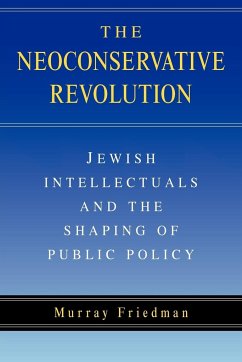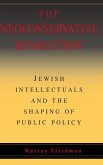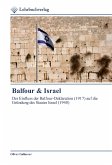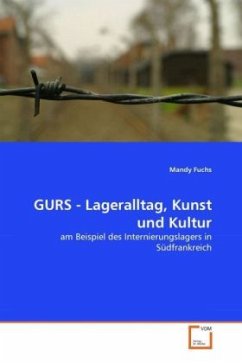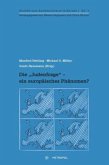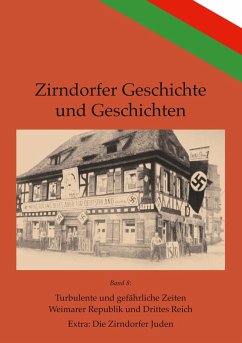This book is the first history of the development of American Jewish political conservatism.
This book which will come as a surprise to many educated observers and historians suggests that Jews and Jewish intellectuals have played a considerable role in the development and shaping of modern American conservatism. The focus is on the rise of a group of Jewish intellectuals and activists known as neoconservatives who began to impact on American public policy during the Cold War with the Soviet Union and most recently in the lead up to and invasion of Iraq. It presents a portrait of the life and work of the original and small group of neocons including Irving Kristol, Norman Podhoretz, and Sidney Hook. This group has grown into a new generation who operate as columnists in conservative think tanks like The Heritage and The American Enterprise Institute, at colleges and universities, and in government in the second Bush Administration including such lightning rod figures as Paul Wolfowitz, Richard Perle and Elliot Abrams. The book suggests the neo cons have been so significant in reshaping modern American conservatism and public policy that they constitute a Neoconservative Revolution.
Review quote:
'Readable and comprehensive. What distinguishes this volume from its predecessors is the greater support of attention it pays to the specifically Jewish background and concerns of some of the leading neoconservatives of both the older and the younger generations. The epilogue briefly delineates the role played by Jewish neoconservatives in the launching of the Iraq War in 2003.' Choice
'[Friedman's] book is - an effort to demonstrate that Jewish intellectuals, activists, and policy-makers played a significant role in the formation of modern American conservatism. He therefore operates on a fairly large canvas, retelling many of the pivotal events in 20th-century American political and intellectual history, especially since World War II, and along the way introducing us to important Jewish players.' Commentary
' - it merits reading by all students of 20th-century American political history -' Jewish Chronicle
'- a scholarly and engaging history of the Neoconservative movement -' Contemporary Review
Table of contents:
Introduction; 1. Jews and the making of the cosmopolitan culture; 2. The premature Jewish Neoconservatives; 3. Forgotten Jewish godfathers; 4. The Liberal civil war; 5. The modernization of American conservatism; 6. The Liberal meltdown; 7. The rise of the Neoconservatives; 8. Neoconservatives and the Reagan revolution; 9. Nicaragua: the cold war comes to this hemisphere; 10. Irving Kristol and a new vision of capitalism; 11. The Neoconservative assault on the counterculture; 12. Jews and the Christian right; 13. Epilogue.
Hinweis: Dieser Artikel kann nur an eine deutsche Lieferadresse ausgeliefert werden.
This book which will come as a surprise to many educated observers and historians suggests that Jews and Jewish intellectuals have played a considerable role in the development and shaping of modern American conservatism. The focus is on the rise of a group of Jewish intellectuals and activists known as neoconservatives who began to impact on American public policy during the Cold War with the Soviet Union and most recently in the lead up to and invasion of Iraq. It presents a portrait of the life and work of the original and small group of neocons including Irving Kristol, Norman Podhoretz, and Sidney Hook. This group has grown into a new generation who operate as columnists in conservative think tanks like The Heritage and The American Enterprise Institute, at colleges and universities, and in government in the second Bush Administration including such lightning rod figures as Paul Wolfowitz, Richard Perle and Elliot Abrams. The book suggests the neo cons have been so significant in reshaping modern American conservatism and public policy that they constitute a Neoconservative Revolution.
Review quote:
'Readable and comprehensive. What distinguishes this volume from its predecessors is the greater support of attention it pays to the specifically Jewish background and concerns of some of the leading neoconservatives of both the older and the younger generations. The epilogue briefly delineates the role played by Jewish neoconservatives in the launching of the Iraq War in 2003.' Choice
'[Friedman's] book is - an effort to demonstrate that Jewish intellectuals, activists, and policy-makers played a significant role in the formation of modern American conservatism. He therefore operates on a fairly large canvas, retelling many of the pivotal events in 20th-century American political and intellectual history, especially since World War II, and along the way introducing us to important Jewish players.' Commentary
' - it merits reading by all students of 20th-century American political history -' Jewish Chronicle
'- a scholarly and engaging history of the Neoconservative movement -' Contemporary Review
Table of contents:
Introduction; 1. Jews and the making of the cosmopolitan culture; 2. The premature Jewish Neoconservatives; 3. Forgotten Jewish godfathers; 4. The Liberal civil war; 5. The modernization of American conservatism; 6. The Liberal meltdown; 7. The rise of the Neoconservatives; 8. Neoconservatives and the Reagan revolution; 9. Nicaragua: the cold war comes to this hemisphere; 10. Irving Kristol and a new vision of capitalism; 11. The Neoconservative assault on the counterculture; 12. Jews and the Christian right; 13. Epilogue.
Hinweis: Dieser Artikel kann nur an eine deutsche Lieferadresse ausgeliefert werden.
'Readable and comprehensive. What distinguishes this volume from its predecessors is the greater support of attention it pays to the specifically Jewish background and concerns of some of the leading neoconservatives of both the older and the younger generations. The epilogue briefly delineates the role played by Jewish neoconservatives in the launching of the Iraq War in 2003.' Choice

